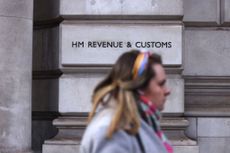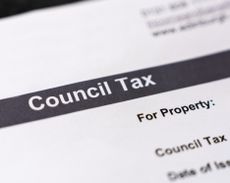Tax
News, updates and analysis on the latest tax legislation, IHT changes, stamp duty thresholds, self-assessment deadlines, council tax bands and tax return filing checklists, from the MoneyWeek team.
Explore Tax
-

Average income tax by area: The parts of the UK paying the most tax mapped
The UK’s total income tax bill was £240.7 billion 2022/23, but the tax burden is not spread equally around the country. We look at the towns and boroughs that have the highest average income tax bill.
By Laura Miller Published
-

Inheritance tax investigations net HMRC an extra £246m from bereaved families
HMRC embarked on almost 4,000 probes into unpaid inheritance tax in the year to last April, new figures show, in an increasingly tough crackdown on families it thinks have tried to evade their full bill
By Laura Miller Published
-

How to file a self-assessment tax return
Millions of people in the UK have to file a tax return to HMRC every year. We share our step-by-step guide.
By Marc Shoffman Last updated
-

How Junior ISAs could help with inheritance tax planning
Looming inheritance tax changes will limit how much pension wealth can be passed on but more people may be maxing out their loved ones’ JISA allowance instead
By Marc Shoffman Published
-

How to check your council tax band
Tips Thousands of homeowners continue to overpay for council tax because they are in the wrong band. We look at how to check your council tax band and how to challenge it.
By Daniel Hilton Last updated
Tips -

Rachel Reeves is rediscovering the Laffer curve
Opinion If you keep raising taxes, at some point, you start to bring in less revenue. Rachel Reeves has shown the way, says Matthew Lynn
By Matthew Lynn Published
Opinion -

Pension tax relief: why the taxman could owe you money
Millions of pounds in pension tax relief is going unclaimed. If you haven't yet completed your tax return ahead of the 31 January deadline, don't forget to claim any tax relief you’re owed.
By Laura Miller Last updated
-

HMRC stamp duty crackdown sees probes of property deals jump 88% – what to watch out for
From bogus stamp duty refund claims to misleading the taxman about who owns a property, HMRC is increasing its scrutiny of stamp duty land tax reporting. Here’s how.
By Laura Miller Published
-

Double inheritance tax payment window for pensions and family businesses, Lords tell government
The government is pressing ahead with plans to charge inheritance tax on pensions, farms and other family businesses but there are warnings that it will be harder for executors to administer an estate and pay HMRC
By Marc Shoffman Last updated
